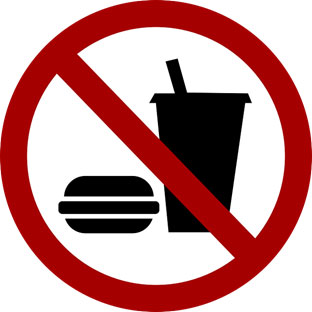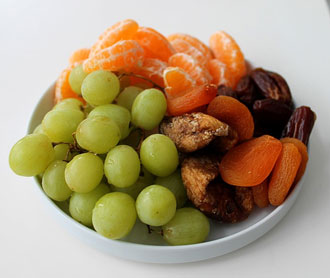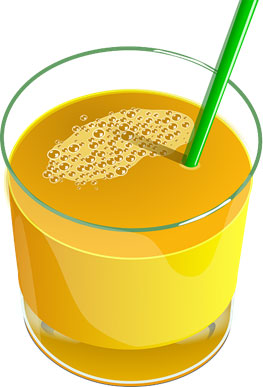How can you make Weight Loss More Effective?
Maximizing your weight loss goals can seem like a difficult task, especially when you’ve been struggling to lose weight
Luckily, there are several tips that can help you in your journey. When combined together, all these strategies can help you lose weight in an effective manner.
Don’t Rely On Fad Diets
There are far too many diets that claim to offer the right solution to weight loss. Some claim the solution is found in low fat, high carbohydrate diets. Others claim that just one type of food is necessary for losing weight.
The truth is that exercising more and eating less is one of the key principles to weight loss.
A way to do this is by reducing or avoiding the following:

- Don’t eat processed foods: Often hidden in these kinds of foods are preservatives and artificial ingredients. There’s hidden ingredients which may seem to be low calorie, but they’re known to increase the risk for obesity. This includes sweeteners like acesulfame potassium, sucralose, and aspartame, all of which are known to cause metabolism disorders.
- Limit the sugar you eat: It’s recommended for women to get just 25 grams, and for men 37.5 grams maximum a day. This is because high sugar can lead to obesity and blood sugar disorders. When blood sugar is manipulated this can lead to the storage of glucose into fat.
A common example of a fad diet that likely won’t work is one where you’re only allowed one food, lots of laxative pills, or fasting for irregular periods. Losing weight can be much simpler than these kinds of crash diets.
Have Goals In Mind
Eating out of boredom is a common thing that can quickly push you past your daily caloric limit. The trick is to have goals in mind where you’re either away from a kitchen, or at least distracted enough to avoid reaching for a snack in the pantry.
To help increase the likelihood that you won’t snack on whatever is available you can do the following:

- Don’t eat away from the diner table: By setting limits on where you eat, you decrease the chances of snacking without thinking. Be aware of your thoughts so you can prevent yourself from drifting into mindless eating. Reserving your eating to just one single area will reduce the possibility of not measuring your food, or eating whatever is put in front of you.
- Hide your treats: By putting snacks away into hard to reach spots, you add a roadblock into the search for food. Instead, you can make a fruit bowl visible, which makes it less likely that you’ll reach out for junk food.
By optimizing your dieting experience, you can reduce the temptations of snacking without any forethought.
Create a Food Journal
Make sure to write down what you eat, in order to track your caloric intake.
Reducing calories is important to losing weight, and by having a full outline of the foods you’ve eaten you can ensure you’re in a caloric deficit.
This also is useful in keeping your diet plan in check, so you can reserve cheat days in case you have aren’t able to adhere to your diet.
Don’t Skip Meals
It’s much better to make sure you have enough nutrients than it is to unnecessarily fast.
In fact, Vanderbilt University conducted a study on people who fasted for around 72 hours. Those studied ended up storing fat instead of losing it. This is because the body begins to think it’s starving itself, so in order to survive it begins to hold unto all the fat it has.
You’re more likely to lose muscle first instead of fat if you fast for a prolonged period.
Drink Water, Not Sweetened Beverages
On average, a 12-ounce serving of soda can contain between 150 to 200 calories.
Since it’s estimated that around a 500 calorie deficit a day leads to a pound of weight loss a week, just 3 sodas per week can add an additional 600 calories that can prevent you from losing that one pound a week.
Be careful of other sweetened beverages that may appear healthy. For example, there’s the following to be careful of:

- Apple Juice: One cup has 24 grams of sugar and 113 calories. A better substitute would be a whole apple, since it contains more fiber and other nutrients that are lost in the processing of apple juice.
- Welch’s Grape Juice: One 12 oz serving has 260 calories, and 63 grams of sugar. Though it’s label reads 100% grape juice, it still contains a high amount of sugar and calories. A better choice would be whole grapes since it actually has fiber and other phytonutrients.
- Minute Maid Orange Juice: Just one 8 ounce serving contains 22 grams of sugar and no fiber. One large orange has less sugar at 17 grams, and 17% of the daily value of fiber.
It can be confusing to see how these juices and sodas are packaged. Since they seem like a simple beverage, they may seem insignificant. The truth is that even occasional drinking of these beverages can mean the different between a pound lost and a pound gained each week.
Water is a far better substitute since it’s calorie free and known to help with appetite.
Eat High Protein
There’s no reason not to eat protein. It’s full of amino acids that the body needs to regulate all its important functions.
It’s also one of the most satisfying foods, and it can help help with your appetite for much longer than even fiber can.
In fact, University College of London performed a study which showed that high protein diets:
“produced higher levels of an appetite-regulating protein”This study confirmed that high levels of protein help with appetite for a much longer period than carbohydrate’s fats, and fiber.
Rich sources of protein include:
- Nuts.
- Lean meats.
- Whey protein.
- Eggs.
- Beans
Conclusion
There are several things to consider when you’re looking to optimize your weight loss.
Luckily it includes easy tips such as keeping a food journal, eating quality protein, drinking water instead of juice, keeping healthy snacks nearby and junk food hidden, and avoiding fad diets.